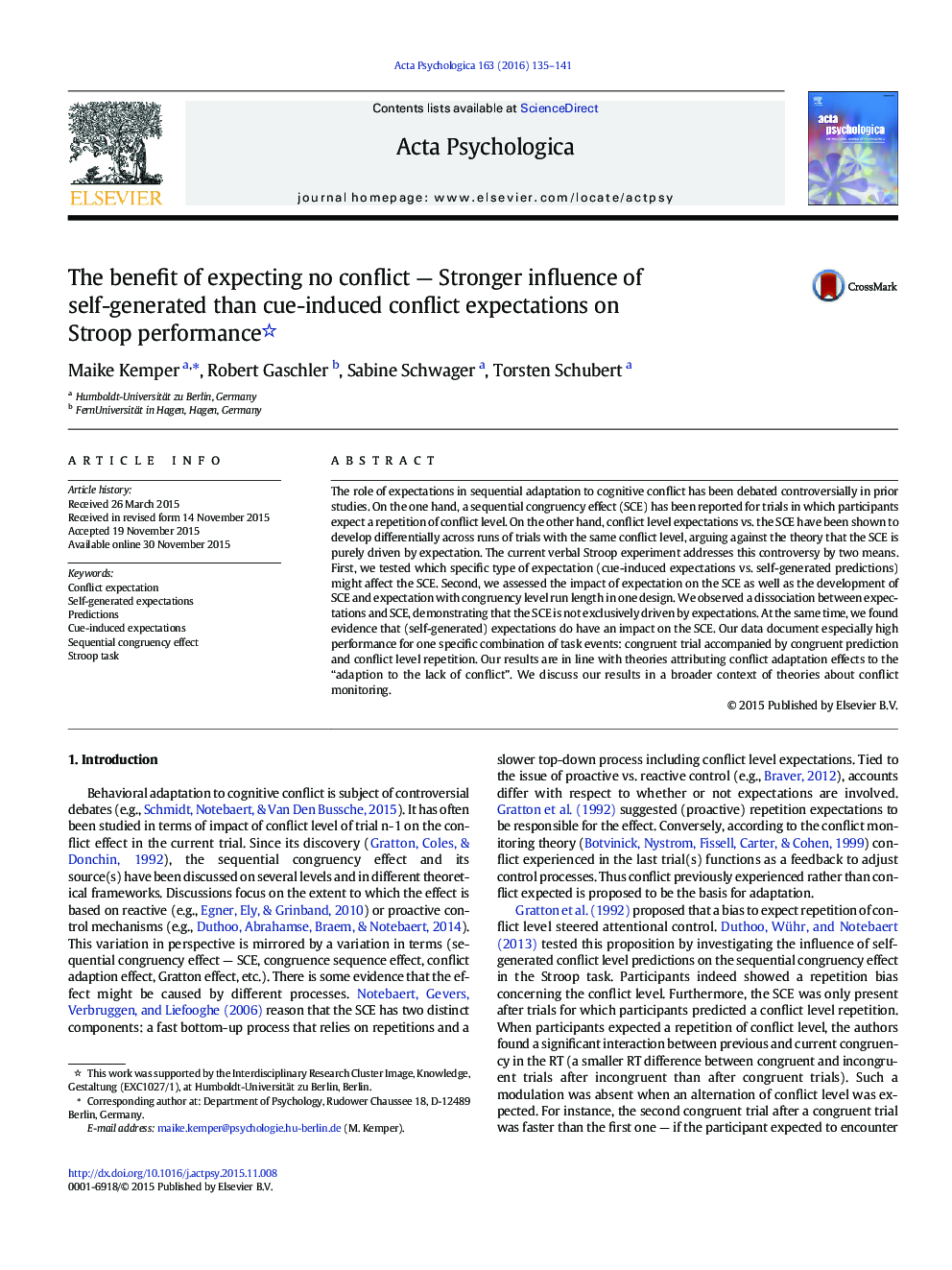| Article ID | Journal | Published Year | Pages | File Type |
|---|---|---|---|---|
| 7277170 | Acta Psychologica | 2016 | 7 Pages |
Abstract
The role of expectations in sequential adaptation to cognitive conflict has been debated controversially in prior studies. On the one hand, a sequential congruency effect (SCE) has been reported for trials in which participants expect a repetition of conflict level. On the other hand, conflict level expectations vs. the SCE have been shown to develop differentially across runs of trials with the same conflict level, arguing against the theory that the SCE is purely driven by expectation. The current verbal Stroop experiment addresses this controversy by two means. First, we tested which specific type of expectation (cue-induced expectations vs. self-generated predictions) might affect the SCE. Second, we assessed the impact of expectation on the SCE as well as the development of SCE and expectation with congruency level run length in one design. We observed a dissociation between expectations and SCE, demonstrating that the SCE is not exclusively driven by expectations. At the same time, we found evidence that (self-generated) expectations do have an impact on the SCE. Our data document especially high performance for one specific combination of task events: congruent trial accompanied by congruent prediction and conflict level repetition. Our results are in line with theories attributing conflict adaptation effects to the “adaption to the lack of conflict”. We discuss our results in a broader context of theories about conflict monitoring.
Keywords
Related Topics
Life Sciences
Neuroscience
Cognitive Neuroscience
Authors
Maike Kemper, Robert Gaschler, Sabine Schwager, Torsten Schubert,
